Mercedes-Benz Engine Start Not Possible in X Miles – AdBlue Warning
If your Mercedes-Benz starts counting down its mileage and displays a warning message stating “Engine Start Not Possible in X Miles” along with an AdBlue indicator and a check engine light is on, it signifies a potential issue with the AdBlue system. If this is left unchecked, your engine won’t start. If the supply of DEF falls below the reserve range, the X starts displaying the remaining message on the instrument cluster. When the dash shows that the number of remaining starts is O, the engine can not be started.
Common error messages on instrument cluster:
- Engine Start Not Possible in X Miles
- 10 Engine Starts Remaining
- AdBlue Eng. Start Not Possible
- Check that the engine light stays on
- Engine Start Not Possible
AdBlue, also known as Diesel Exhaust Fluid (DEF), is a crucial component in modern diesel engines that helps reduce harmful nitrogen oxide (NOx) emissions. It is maintained or stored in a different reservoir and is usually a blue-colored filler cap that may be found under the hood, in the boot, or next to your fuel filler. This is not a fuel additive; AdBlue or DEF is an exhaust fluid. The DEF vaporizes once it enters the Diesel Particulate Filter (DPF), sometimes called a catalytic converter; these substances interact with nitrogen oxides, breaking them down into harmless nitrogen and water vapor released into the atmosphere. When the AdBlue system encounters problems, it can be a reason why the engine is not starting.
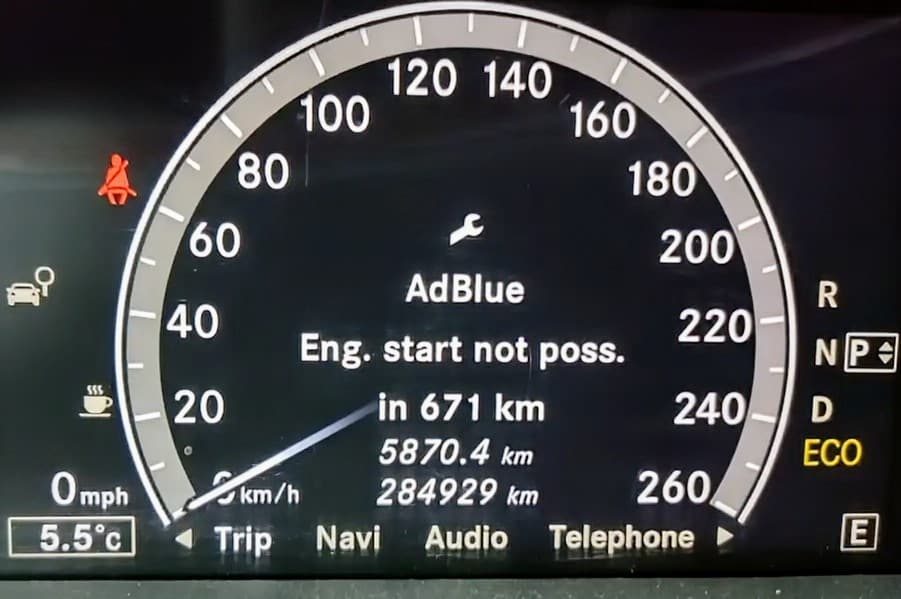
AdBlue can restrict engine operation and stop the vehicle’s ignition system. Your Mercedes won’t crank, or it may start but only drive at a max speed of 5 mph. The importance of this process cannot be understated, especially in light of the increasingly strict emission standards set by authorities worldwide. It’s not just about passing emission tests; it’s about preserving our environment for the benefit of future generations.
What is AdBlue, and why is it associated with SCR?
AdBlue is a mixture of high-purity urea and deionized water. Due to its water-based composition, it is safe for humans and the environment and is not flammable or hazardous. AdBlue is a clear liquid and a crucial component of selective catalytic reduction (SCR) (control unit N118/5) technology; this fluid vaporizes and interacts with the catalyst, breaking nitrogen oxide into harmless water and nitrogen. This process helps ensure that the vehicle complies with stringent emissions standards.
Common Causes Why Your AdBlue is Failing

- Low AdBlue Level – The system will provide a countdown indicating the remaining mileage before the starter motor becomes disabled, which is used to start the car. Your engine may stop running entirely when the fluid runs out. Check AdBlue fluid level.
- Faulty AdBlue Injector – This injector is responsible for spraying the AdBlue into the exhaust system. This can disrupt the AdBlue dosing process and may trigger a warning message if it malfunctions. You will not be able to start the engine after a specific mileage.
- NOX Sensor Failure – This sensor measures the level of nitrogen oxides in the exhaust stream. If the Fluid level is correct, but the symptom persists, then the NOX sensor could be the culprit. If this sensor malfunctions, it can send inaccurate readings to the engine control unit (ECU), leading to a warning message.
- AdBlue pump – This pump transfers the AdBlue from the reservoir to the injector. This can hinder the AdBlue supply and cause warnings when malfunctions.
- AdBlue System contamination – Contaminations from external factors may lead to corrosion, which can affect its efficiency and trigger the warning.
- N3/9 Motor Electonic Problem – Failure of the motor electronic CDI on OM651 and OM642 engines can also lead to problems with the Adblue system and prevent engine start, even though this is less common.
Troubleshooting
- Scan for Codes – connect a diagnostic tool such as YOUCANIC Full System Scanner to the OBD-II port to retrieve any stored trouble or fault codes and delete them so the engine warning light will be cleared after applying the solution. When scanning the vehicle, you should get related fault codes such as:
- Check AdBlue level – check the dashboard indicator, then the AdBlue tank, or use a dipstick. If the fluid is low, always top up with high-quality AdBlue fluid. AdBlue is an MB term, and your local parts store may call AdBlue Diesel Exhaust Fluid.
- P13E4 or P13E400 stating the remaining driving distance is limited due to a malfunction in the AdBlue system
- P2BA900 – the emission limit for the NOx concentration has been exceeded, and AdBlue quality is too low.
- Visual Inspection – you can thoroughly check the AdBlue system components like tank, lines, or injector for any signs of damage.
The following system fault codes may occur: 16D300, 16D400, 16D500, 15EA00, 15EB00, 15EC00, 16CE00, 16CF00, P13DF00, P13E300, P13E400, P13E500, and P13DF09. These codes are consistently displayed with at least one cause fault code in the engine/SCR control unit. It is important to note that erasing the quick test will result in losing information regarding the cause fault code.
Maintenance and Safety Guidelines
- Most modern vehicles are equipped with a device that gives you a warning or a light switch in the dashboard that your fluid is running low. Always monitor your AdBlue warning light for timely refills. Although the consumption of DEF depends on your driving habits, a full tank of DEF is roughly around 10,000km.
- You can refill it yourself, but AdBlue is a separate tank from your fuel system. Never mix this with your diesel fuel; they both serve a different purpose.
SCR / DPF EGR No Start Delete
While it is possible to delete the SCR / DPF system by coding and removing the system from the vehicle, this procedure is not recommended and is illegal in most countries. Removing the SCR / AdBlue/DPF can prevent you from passing the emission test and could even lead to fines.
References
- “Engine Start Not Possible in XXX Miles” Warning:
https://forums.mbclub.co.uk/threads/adblue-engine-start-not-possible-issue.271108/ - Troubleshooting Common AdBlue Issues:
https://mbworld.org/forums/s-class-w221/759629-adblue-engine-start-not-possible.html - AdBlue System Contamination and Repair:
https://www.motor-talk.de/forum/adblue-vollgetankt-wird-aber-nicht-erkannt-t5865996.html?page=1 - Mercedes-Benz AdBlue Pump Replacement:
https://mbworld.org/forums/mercedes-tech-talk/686865-adblue-pump-replacement.html - AdBlue: A Guide to the Diesel Exhaust Fluid and Its Role in Diesel Engines
https://www.driva.com.au/blog/adblue/ - NHTSA – Engine diagnosis warning lamp lights up – “Check AdBlue” or “No start in XXX km/miles” appears in instrument cluster – Fault codes concerning AdBlue system stored in engine control unit
https://static.nhtsa.gov/odi/tsbs/2015/MC-10135868-9999.pdf





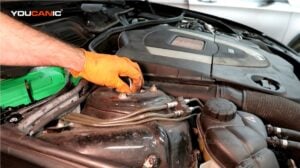
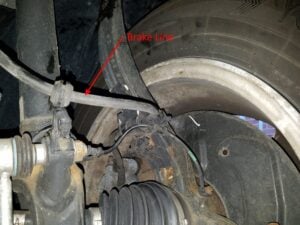
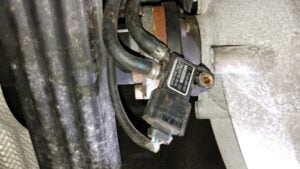

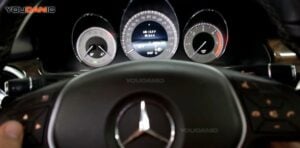
I get the same message, as attached and even the km was running quickly then the real km. I topped up the Adblue and the tank was filled up with only 5 kg, which is a way less than it’s capacity. Anyway the km was still running and at the end there was a message saying that “Engine start is not possible”. I turned off the engine and I started it and a miracle happened – it started! The engine light was still on, but I turned off the car and in the next morning there was nothing on the board – no lights, no signs, nothing at all.
I hope you’ll have the same success guys!